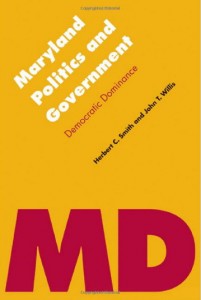That’s what Tony Campbell, a former Republican Party official from Baltimore County, is saying.
If Paul wants to continue his campaign, he has the right to do so as a third-party candidate. Ron Paul is NOT a Republican and certainly is not a Conservative. The sooner Republicans figure out that the Ron Paul of 2012 is no different from the Paul of 1988; the sooner Republicans can get to the business of deciding our nominee without distractions from fake Republican candidates dressed up in elephant clothing.
This line of attack might have a bit more traction if there was some substance to back it up.
The substance of his objections lies in large part on Paul’s 1988 campaign for president as the Libertarian Party’s candidate, during which he criticized Pres. Reagan’s record and the fact that in this campaign he has not attacked Romney the way he has attacked Santorum, Gingrich, and others.
As for the first, it might cost me some of friends in the MDGOP, but Reagan was no perfect president. He did raise taxes (something even conservative stalwarts like Grover Norquist have acknowledged as a big mistake), he displayed a less than stellar commitment to cutting government spending, and he probably could have employed better discretion as concerned foreign affairs. It’s a dishonor to Reagan’s legacy to recognize all the good he did but gloss over his mistakes.
And as for the second, why is anyone surprised that Paul has attacked Romney less than Gingrich and Santorum (and yes, it’s a matter of less, Romney has been criticized by Paul too)? After all, both have displayed significantly more hostility to Paul and his candidacy than Romney has.
Remember this bit from Gingrich?
https://www.youtube.com/watch?feature=player_detailpage&v=N2Sm9KpLsLE#t=116s
And then there’s Santorum who has been quite open about his hostility to the libertarian project within the Republican Party.
“I am not a libertarian, and I fight very strongly against libertarian influence within the Republican Party and the conservative movement…I’ve got some real concerns about this movement within the Republican Party and the tea party movement to sort of refashion conservatism, and I will vocally and publicly oppose it.”
In contrast, Romney has been incredibly respectful of Paul even as he disagrees with him. Given a field where most of the candidates have been open with their disdain for the libertarian congressman while one has been gentlemanly, where do you think his attacks would be focused?
Of course, Campbell thinks otherwise and uses a Huffington Post article as evidence that there’s a backroom deal between Romney and Paul, with Paul undermining Romney’s competition in exchange for Paul’s son Rand being named the VP candidate.
It seems that the only reason that Paul is still in the race is to assist Mitt Romney is bullying his way to become the nominee of the Republican Party. If that was not enough, it seems that his sonSenator Rand Paul has publicly said that he would accept the Vice Presidential slot on the Romney ticket.
Unfortunately, the article doesn’t say what Campbell thinks it does. Rand Paul never said he would accept the nomination, only that he would be honored to have it offered. And really, is there anyone who wouldn’t be honored to be offered the Vice Presidency of the United States, regardless of whether or not they accept the offer?
But if you’re a Republican, you probably ought to be eager to see one of the Paul’s on the Republican presidential ticket. Why?
Gov. Gary Johnson.
Johnson was an extremely popular two-term governor of New Mexico, a former Republican, and the presumptive nominee of the Libertarian Party for the upcoming election.
As a former governor, he is probably the most credible candidate the Libertarian Party has ever fielded. More importantly, he already polls at 9% in hypothetical match-ups against Pres. Obama and various Republican nominees, putting him in close range of qualifying for debates.
Now I happen to think that while Johnson’s candidacy will do more to hurt Obama by highlighting his hypocrisy on medical marijuana, gay rights, and foreign policy, he has a fair amount to offer disaffected Republicans as well.
And who will be more disaffected amongst Republicans than Ron Paul supporters if one of the Paul’s isn’t on the ticket? If you’re a Republican think about this possibility for a moment:
- A former governor, with more executive experience than either of the major party candidates;
- Calling for more aggressively right-wing policies on taxes and spending;
- Backed by Ron Paul’s army of supporters and getting tons of media attention from it;
- Qualifying for the debates;
- And then being on the ballot in all 50 states
If that’s a scenario you’re comfortable with as a Republican, then by all means, continue to be disdainful of Ron Paul’s candidacy and dismissive of the idea of Rand Paul as VP. On the other hand, if that worries you, it might be worth reconsidering how the Republican Party engages with its libertarian wing.
(FULL DISCLOSURE: I am the former Maryland State Director of Gov. Gary Johnson’s presidential campaign. I am also a member of the Queen Anne’s County Republican Central Committee. From the point at which Gov. Johnson left the Republican presidential primary I have endorsed no presidential primary candidate.)








